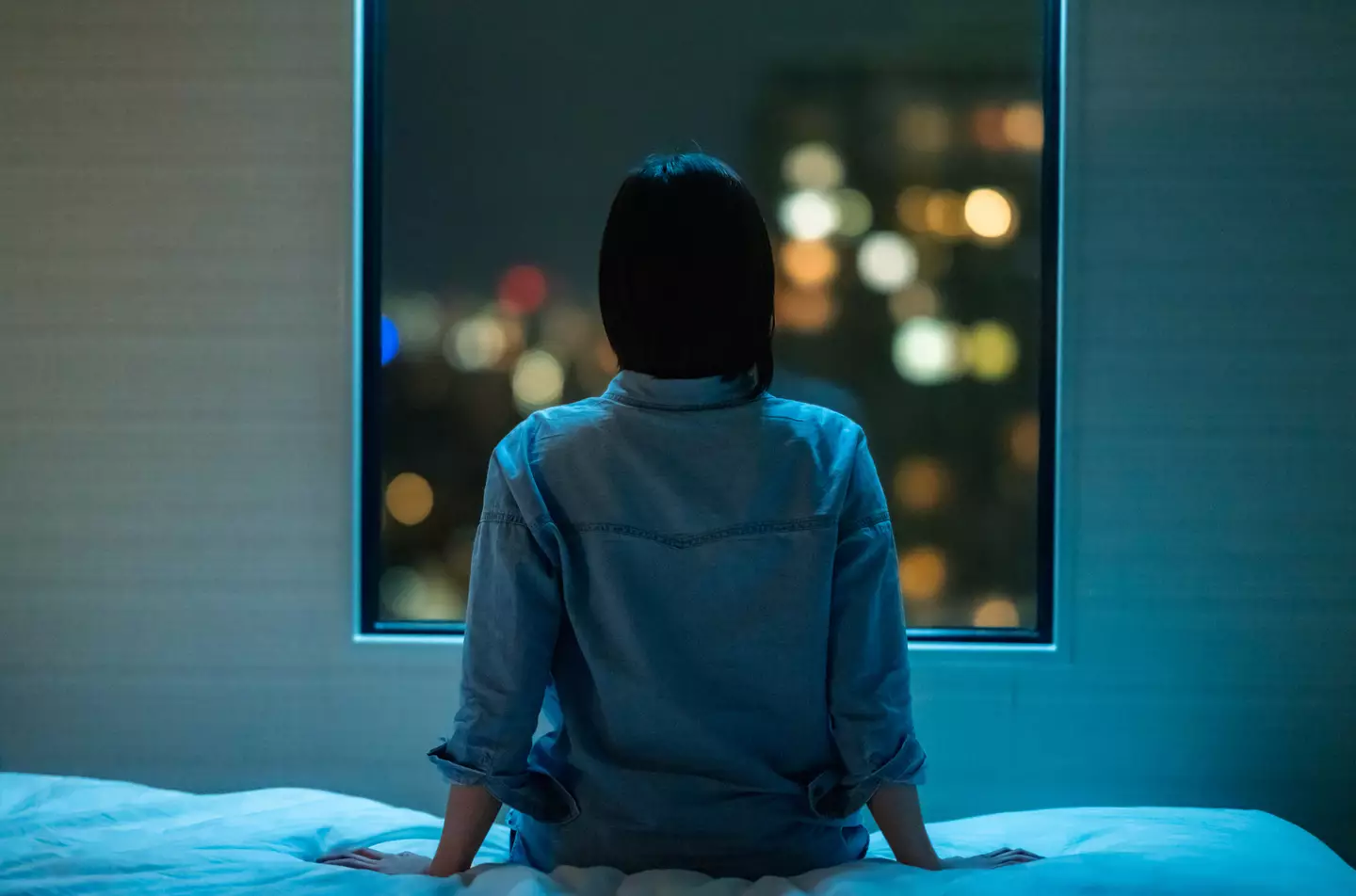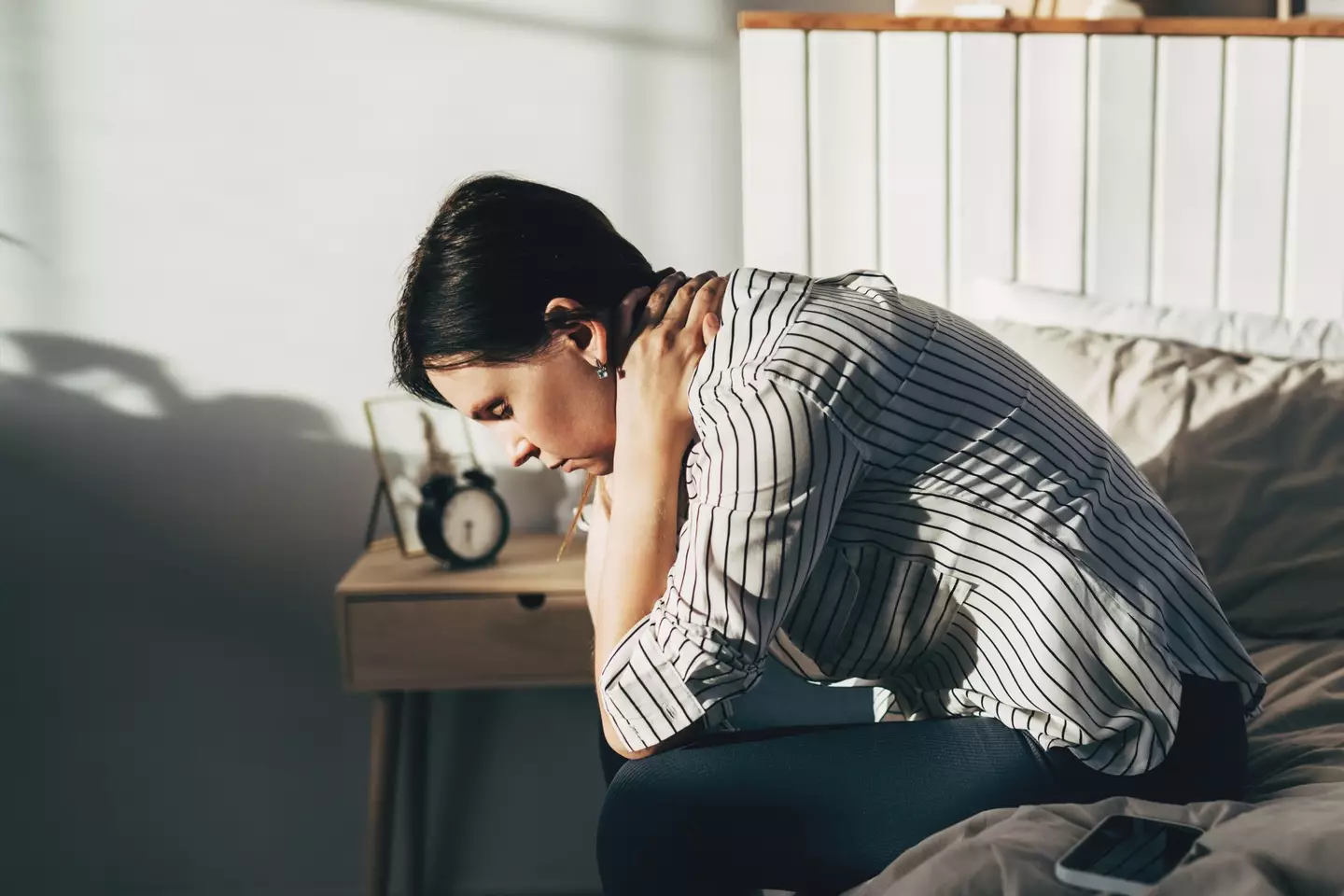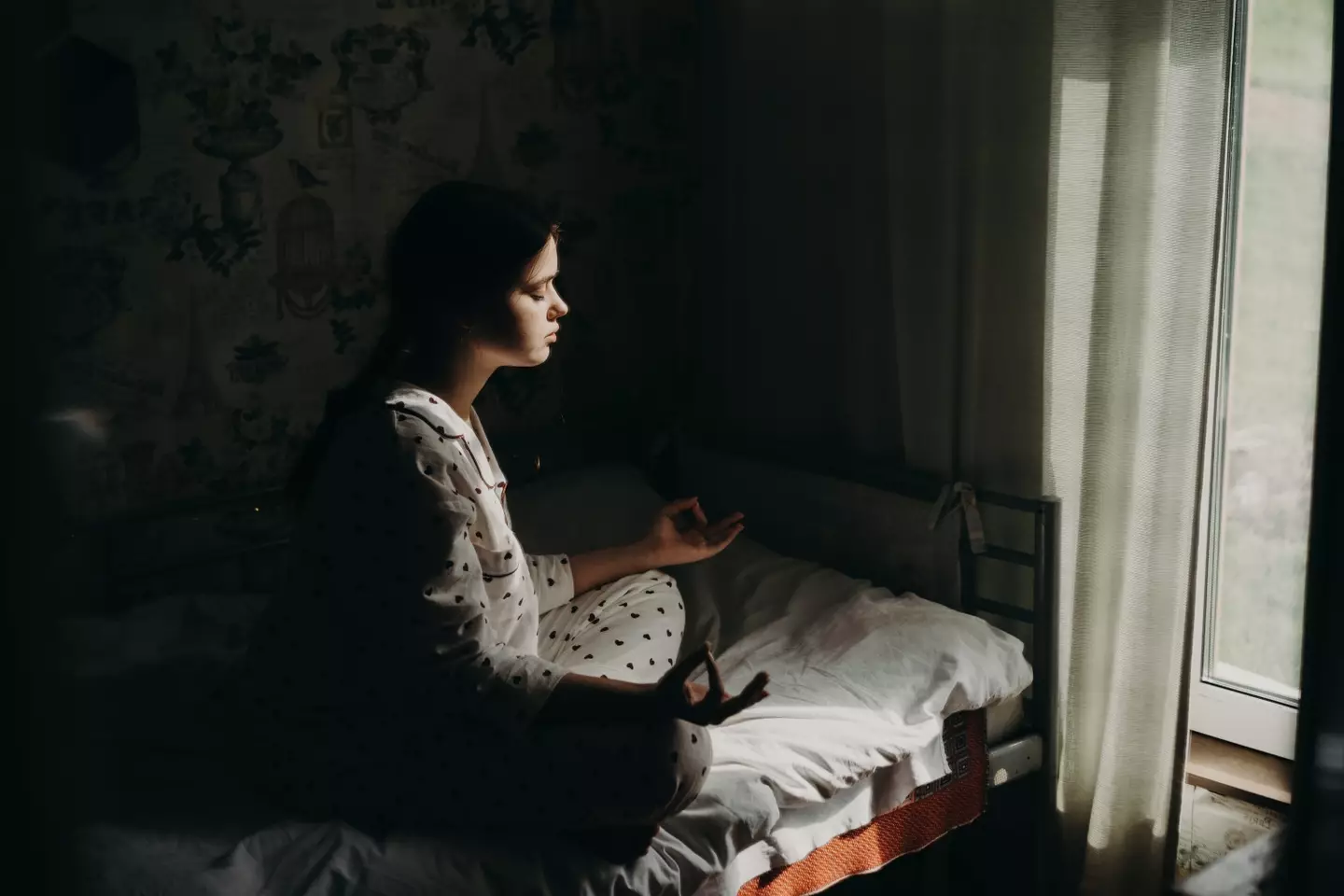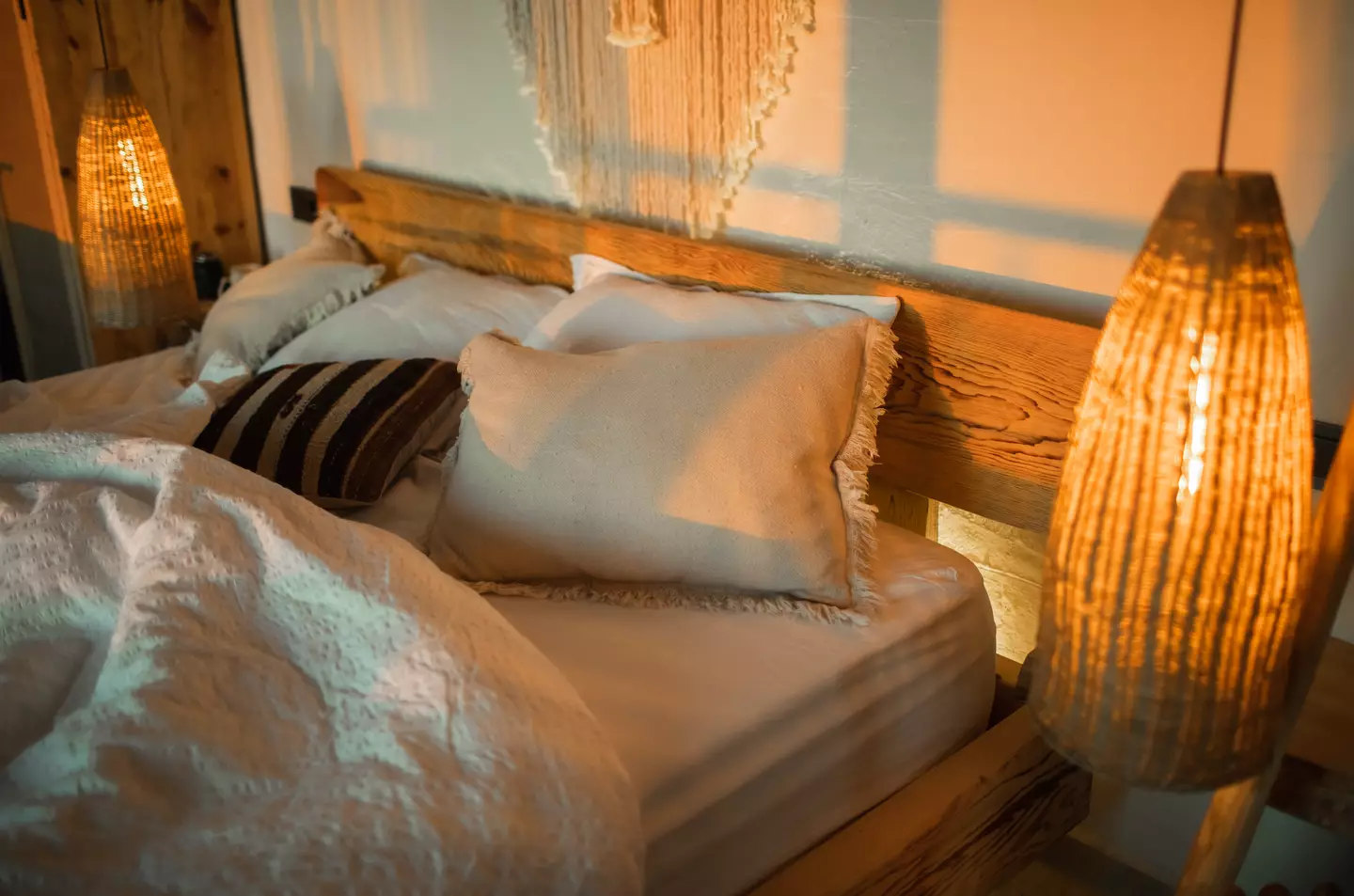.png)
You've just endured a long, hard emotionally draining day at the office, and finally, it's time for bed.
Just when you've got into your cosiest pyjamas, wrapped yourself in your duvet and landed on your pillow, a pang of anxiety hits you right in the gut.
Sound familiar? Honestly, relate.
In some cases, you mightn't able to put your finger on what exactly has triggered this overwhelming feeling of worry.
Advert
And in others, it may well be that family fears, professional concerns or relationship issues have been playing on your subconscious all day, and have only emerged from the back of your mind when it's time to switch off.
Whatever the circumstances, there's nothing worse that that feeling of dread wrapping itself around your heart, leaving you unable to sleep and making you just want to burst into tears.

Why do these horrible feelings emerge before bed?
According to experts at the mental health app Calm, there could be several reasons why you only seen to become overwhelmed with these thoughts at night.
In many cases, work-based distractions, responsibilities and necessary errands can keep our minds occupied throughout the course of the day, so they don't drift onto what concerns us most.
Going to bed, however, gives us the opportunity to look back on the day before you, and therefore, allows time for worries, concerns, regrets and woes to make themselves known.
It has also been found that too much screen time, an overconsumption of caffeine, and a lack of routine can trigger feelings of panic, especially in moments when the sufferer is purposefully trying to wind down.

Some individuals also suffer from somniphobia - the fear of actually falling asleep, or the fear of what might happen during sleep.
Thankfully, however, there are several different means of treating this very specific type of anxiety:
Mindfulness and breathing
Experts at Calm heavily recommend mindful meditation before getting into bed as a means of combating stress.
By taking 10 to 15 minutes, to breathe deeply and allow each thought to pass you by without focusing too much on each one - inhaling and exhaling as you go - you can reportedly achieve an inner acceptance that allows you to get a peaceful nights sleep.
Alternatively, if you find that your anxiety presents itself in the form of rapid, shallow and panicked breathing, try the 4-7-8 method.
This sees you inhaling quietly through your nose for four counts, holding your breath for seven counts, and exhaling slowly through your mouth another eight.

By repeating this several times, safety signals can be sent to your nervous system.
Grounding
The 5-4-3-2-1 technique can be used as a means of redirecting your senses, and in turn, taking your mind off whatever is troubling you.
You'll focus on five things you can see, four things you can touch, three things you can hear, two things you can smell, and one thing you can taste.
This should bring attention to the present moment and direct it away from anxiety-inducing thoughts.
Visualisation
It might sound odd, but in some cases, picturing your desired outcome can assist in boosting positivity and therefore minimising negativity.
Calm says that by imagining a scene that 'evokes serenity' - laying on a beach, walking through a meadow - you can allow those sights, sounds and smells to flood your mind.
Apparently, this is especially beneficial when paired with breathing relaxation.

Sleep environment
Changing the ambience of your bedroom - by adjusting lighting, bedding, or implementing music or white noise - can hugely help with anxiety.
Doing this can send signals to your brain that it's time to allow the day's troubles to float away, and relax.
Professional support
If you know it's work woes that are bringing you down, it might be worth speaking to your line manager about your concerns.
You have every right to open up about your wellbeing, especially if you think it's affecting your job performance at the same time.
After all, no one wants to be stuck in that vicious cycle.
It may be that your employer recommends the likes of Cognitive Behavioural Therapy, or counselling, as means of overcoming anxiety - and there's absolutely nothing wrong with that.
Calm emphasises that 'if sleep anxiety persists and impacts daily life, consulting a mental health professional can be valuable'.
Topics: Sleep, Health, Mental Health